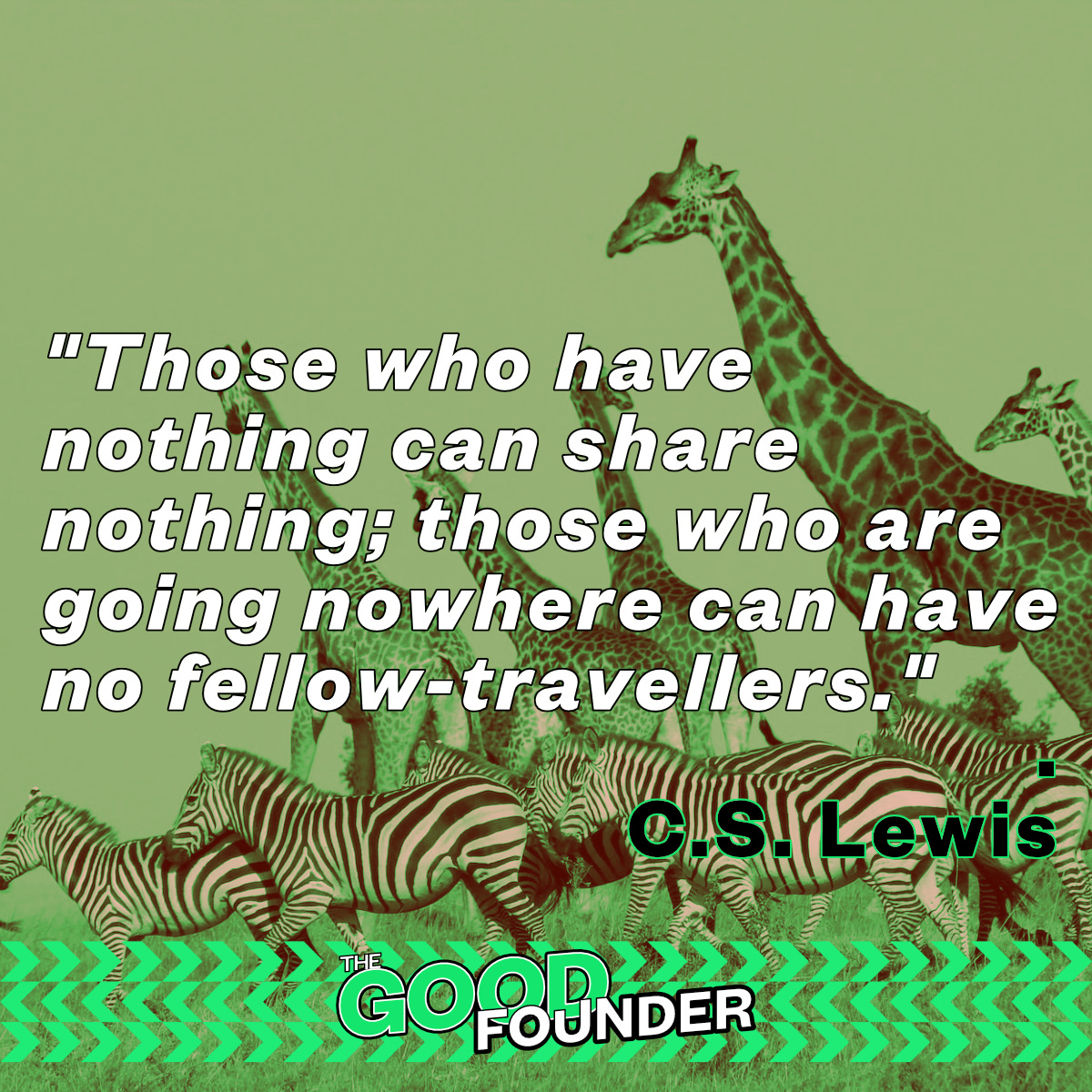Travel Together
Community doesn’t mean being identical, just alike.

This is part two of a three-parter. If you missed the first one, you can find Community Saves Lives here.
When we think of communities in this way there’s usually a shared purpose or reason for being.
Shared Journey
Our thing in common can be linked around one shared interest, like supporting a football team, which binds you even though you have no other shared interests. It can even ignore all of the other things that might differentiate us or set us apart.
When you’re in a crowd and your team scores you don’t care who your neighbour voted for. That moment overrides any better sense.
Community can be temporary, it can be serendipitous, it can be spontaneous, or it can be sustained over years.
It isn’t always so formal, you don’t always know that you’re in one. You might not realise until you notice it is missing.
The same shared purpose idea drives our friendships.
This was explored in Billy No Mates by Max Dickins.
Our needs for friendships change. This might sound cold and transactional, but it plays out.
The friends you were in university with were going on the same journey as you at that time.
You’re more likely to stay in touch with people who are on a similar journey to you.
When you leave school you stay in touch with people who are going to uni. When you leave uni you stay in touch with people who are going into a similar career or profession. If you have kids then you end up spending more time with friends who also have kids.
Some of this is obvious logistics, if you move to the same city as someone else then you have more opportunity to stay in touch, similarly if you have kids at a similar time then you will have a reason to meet up and socialise collectively.
But the more important part is driven by empathy, and shared understanding.
Of course this doesn’t mean you intentionally only stay in contact with those people, but it is more likely to happen. You’re more likely to have interesting things to talk about with them.
There’s pretty obvious evidence in this when you’re childless and find it so painfully boring to hear about what your friends’ kids have been doing, and then if you do have kids realising how much they dominate your lives and thoughts.
Most of us are more empathetic than this, and are still able to make an effort to stay in touch with those that we have less in common with. But reflect on your existing friendships and whether you have consistently had more in common with those that you stayed closer to than those who have drifted.
Friendship Club
We get the feeling of communitas through sport, whether participating or attending an event.
If you’re a big sport fan, you might have never thought about how that urge to throw your hands in the air when a goal is scored or a decision goes against you is totally involuntary.
The same at the end of a great piece of music, the round of applause can be so charged.
When you feel this sense of fiero you respond. We can’t not do it.
It doesn’t affect the game, the referee doesn’t see you waving, the players wouldn’t underperform if you were the only one who didn’t wave.
Another unexpected place where this communitas is present is in choirs and orchestras.
Singing creates synchronicity, and synchronicity builds relationships.
It’s why militaries march, it creates compliance and understanding - for good or bad.
One of the best ways to feel connected to people is to join a choir. Singing in time with others is good for the soul.
Synchronicity pays back in other ways too.
Synchronised holidays are another fascinating indicator of the importance of this. Time shared is better than time hoarded.
In Sweden, a 2013 study found that antidepressant usage went down during holidays - when prescription data was tracked.
This might not be that much of a surprise on its own, but there is a twist.
It dropped exponentially if more people were on holiday at the same time. The more people that are on holiday, the more the benefit is.
The USSR found something similar in an experiment designed to increase productivity by giving a new four days on, one day off, work pattern. There was a lot of sound logic here - it would spread the demand for public services like GPs and dentists - and basically decreases the days off to a weekend every eight days.
This was abandoned when mental health was seen to really plummet as a result of how difficult it was to sync up social engagements.
The patterns didn’t lend themselves to community building, if your day off wasn’t in sync with your partner or friends then you might still get the day off but you don’t have any of the benefit.
Time is a resource that can’t be hoarded well. It’s much better shared.
Time is a network good, the more of it that people around you have, the more it is worth to you.
Having lots of time but no constructive or collaborative way to spend it isn’t just useless, but it can be uncomfortable.
In Quiet, Susan Cain explores how introverts recharge with alone time, whereas extroverts recharge with others. That doesn’t mean that only extroverts need others and only introverts appreciate being able to shut themselves off.
Finding others in a community with shared views and perspectives can help us to feel validated.
We’ll cover more of this in part three.
Click here to read part three, talking about social media, marching, and workmates.
Read next…
We need to talk more about the true meaning of life.
Learning to let go is an essential skill as you scale and grow.



